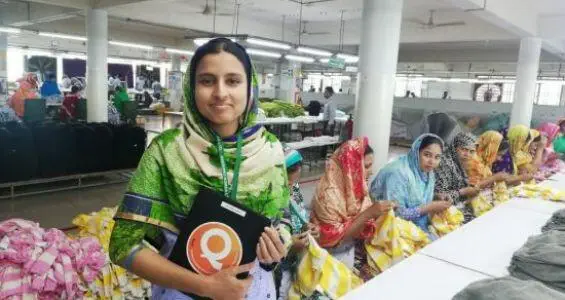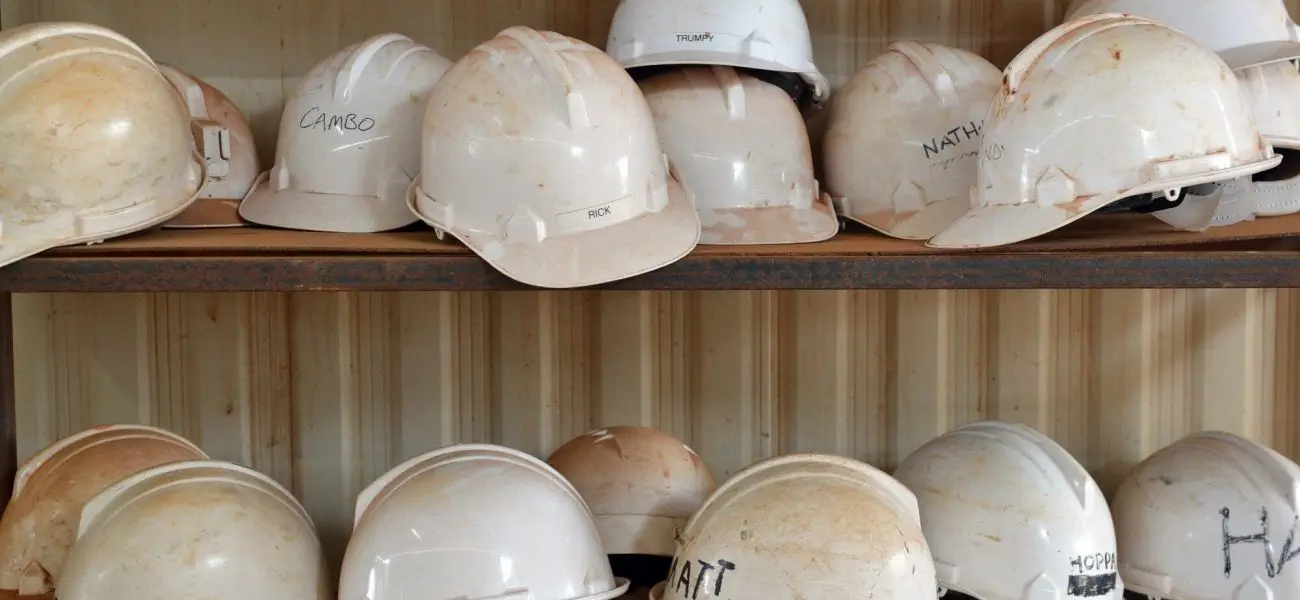
“After the JETI-QuizRR training we came to learn what qualifications we should look for in a candidate who can represent us and our rights,” says Mahduda Begum (photo), trimming operator at Heasong factory in Bangladesh.
Put simply, workplace social dialogue is a process that brings together workers, their representatives and employers to discuss problems and improve working conditions. For the full International Labour Organisation (ILO) definition (on which the Joint ETIs’ social dialogue project is based) scroll down to the Endnote.
In Bangladesh, the Joint ETIs believe that a commitment to social dialogue is particularly important. That’s because Bangladesh has historically suffered from weak systems of industrial relations and low levels of social dialogue. However, there is increasing appetite from both workers and employers for positive change in the workplace that will lead to improved labour-management relations.
Giving workers the opportunity to represent themselves is key not only to achieving fair working conditions but also to creating stable sourcing markets and sustainable economic growth. It’s why, over the past three years, we’ve rolled out social dialogue training in 35 factories reaching 77,860 workers.
We’ve concentrated on upskilling workers and managers who are members of factory Participation Committees, both in factories with and without a trade union. In Bangladesh, these committees are required by law, but can often be ineffective. That, we’re convinced, needs to change if we are to see improved worker/manager relationships.
Introducing “blended learning”
Now, we’re partnering with QuizRR to expand our Social Dialogue programme to a further 20 factories of which six, with a collective workforce of over 20,000 (including management, supervisors and workers), will pilot a so-called “blended learning” approach.
QuizRR offers digital training solutions that advance corporate responsibility and we’ll be working with them to strengthen the knowledge and ability of Participation Committee members specifically and factory floor workers more generally.
Their programmes have been used in almost 280 factories in Bangladesh, China, Thailand and Mauritius where they have trained over 91,000 people in over 314,000 training sessions. QuizRR, like the Joint ETIs, believes that if companies are to become drivers of change they should be role models for the business and human rights agenda.
Why a blended learning approach? Blended learning, combining digital media and classroom methods, is effective and cost efficient, allowing sustained knowledge as well as in-depth training for selected employees at all levels. The combined techniques allow factories to collect data on training activities and results to analyse progress, impact and next steps.
Seeking solutions that work
Central to a company’s human rights due diligence is their ongoing strategy to prevent negative impact on workers in their supply chains. A small but growing number of companies are now putting improved workplace dialogue and worker representation at the core of their ethical trade strategies and are looking for solutions to roll out in sourcing markets.
ETI-Norway member Varner, which has participated in the Bangladesh Social Dialogue programme since the start, is engaging with two suppliers in the blended learning pilot.
One of those suppliers is Heasong Korea Ltd. With a workforce of 2,100, it is bringing together QuizRR technology with the Joint ETIs’ face-to-face training. So far, 1,100 employees have been trained in sessions on nominating and electing Participation Committee representatives and on roles and responsibilities.
Varner’s CSR Manager, Vegard Krohn Neverlien, says that in Varner’s experience, “strengthening social dialogue at their suppliers can contribute to better working conditions.” He also believes that, “training in dialogue at the workplace through a blended learning approach has the potential to further strengthen worker representation and contribute to the foundations for decent work.”
Impact on individual workers
In the Heasong factory, the training started with a meeting with management to introduce the concept of worker engagement. A plan was then made, identifying existing systems and exploring potential improvements.
Workers followed a combination of interactive training solutions with short films followed by quiz questions on tablets. This was coupled with face-to-face training aimed at management and worker representatives who are members of the Participation Committee.
In short, as Heasong has found, the training prepares the whole workforce with shared knowledge while ensuring that individuals receive specific skills and knowledge on how to prevent and mitigate issues. And it makes workplace dialogue constructive and sustainable to the betterment of working conditions and production.
Armina Akter and Mahduda Begum are trimming operators at the plant.
“Through this digital tablet training,” Armina says, “we learn how to cast our votes, what rights and responsibilities I have as a worker and what the responsibility of our elected participation committee members are.”
Mahduda agrees. She says: “After the JETI-QuizRR training we came to learn what qualifications we should look for in a candidate who can represent us and our rights.”
Rahul Amin is a supervisor at Heasong. He explains what he’s learnt. “The voting should be secret, with a ballot like a national election. Earlier I did not have any idea that this applied to our Participation Committee election. I learned this now through the videos, which taught me about the necessity of a secret vote,” he says.
Good for business and workers
Already, the JETI approach has proven to be hugely successful. External evaluation has demonstrated its potential for increasing productivity as well as how it has decreased labour unrest because of improved morale and communication. Importantly, it has also increased the participation of women in workplace processes.
Now, anecdotal evidence from the Heasong factory, appears to be demonstrating equally positive results. Mohammed Jahangir Alam Mridha is the Deputy General Manager, HR Admin & Compliance. He’s convinced that blended learning is an effective way to build and sustain knowledge within the factory.
“The training approach of this pilot enables us to provide training to all workers and the participation committee members in an efficient way,” Jahangir says. “The workers really enjoy the gamification approach to learning with videos and quizzes. The digital training solution enables us to deliver the training in a more dynamic and effective way to a larger number of workers at a time.”
We’re as convinced of that as Jahangir.
To learn more about the blended learning approach and how to get involved, contact Nigel Venes, Strategic Lead, Apparel and Textiles, ETI UK (Nigel.Venes@eti.org.uk) or Katrine Karlsen, Senior Advisor, ETI Norway (katrine@etiskhandel.no) or Abil Bin Amin, Progamme Manager, ETI Bangladesh (abil.amin@eti.org.bd).
ENDNOTE: «The ILO defines social dialogue as “all types of negotiation, consultation or information sharing among representatives of governments, employers and workers, or between those employers and workers on issues of common interest relating to economic and social policy.” (International Labour Office: Governance and Tripartism Dept, 2013). Social dialogue has been shown to be an effective tool for both workers and employers, in preventing minor disagreements from escalating into major disputes, in helping enterprises to become more efficient and competitive, in increasing labour productivity, in reducing employee turnover and in developing trust and confidence in the workplace and subsequently more mature, effective forms of interaction. (FIP Good Practice Guide, Social Dialogue and Workplace Cooperation, ILO).


